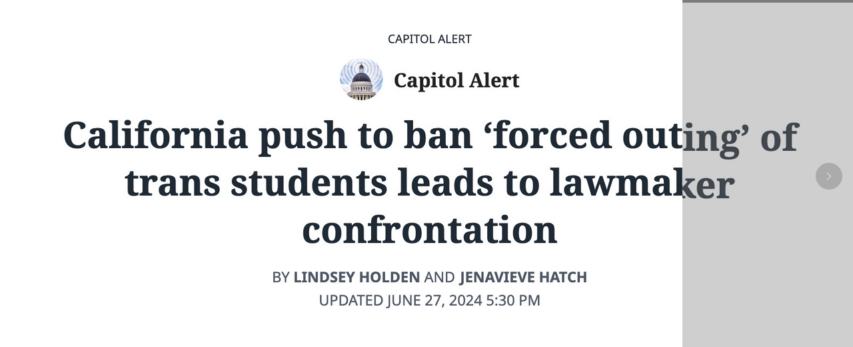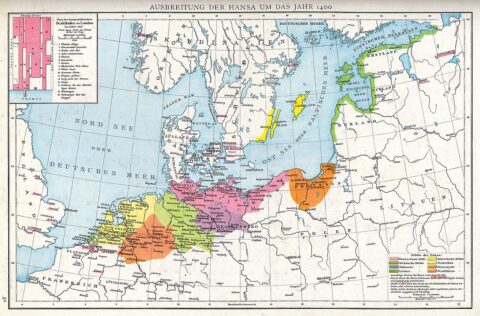Chris Bray pays attention to California politics … and we should all pray for his long term mental health: that place is insane!
What’s happening in California isn’t politics in any conventional sense. No debate is underway, and no policy choices are being hashed out. We’re in the land beyond. In Our Democracy™, declarations are made, and then they are to be received in a spirit of quiet submission. Your failure to submit is disallowed, and the reason it’s been disallowed is that it’s been disallowed. Were it allowed, it would not be disallowed, but it is, in fact, disallowed, so therefore it is not allowed, you see? All “political” discussion is a circle, eating its own tail. I’ve been trying to figure out how to explain this, but the Sacramento Bee just did it for me. (Paywall-evading version here.)
The Bee is explaining — or “explaining” — what happened on the floor of the state Assembly yesterday, when a Republican was not permitted to argue against a bill, and a Democrat stood up to threaten him for trying. I encourage you to read the whole self-refuting thing. What happened, it turns out, is that the Republican was preventing debate by engaging in debate, which meant that he had to be silenced and threatened so debate could continue, which required that no one express opposing views, which is an act of anti-debate aggression. Debate is agreement, and not agreeing is preventing debate.
The “forced outing” debate was a discussion about AB 1955, which proposes to forbid schools to inform parents of discussions between children and school officials about sexual orientation and sexual behavior. It’s important that parents not be told about sexually themed discussions happening between children and the adults in their schools, because not telling mommy and daddy about sexual discussions is being safe and warm. But watch the casual turn of logic in the last paragraph of this screenshot:
- Evan Low said the bill is important because it’s good that parents not be told, and the bill makes sure parents aren’t told.
- Sabrina Cervantes said she didn’t have this bill when she was young, which would have forbidden telling, so someone told.
- Democrats explained that the bill is not meant to keep secrets from parents.
See, AB 1955 isn’t about keeping secrets from parents — it’s about not allowing schools to tell parents. Not being allowed to tell parents is different than keeping secrets from parents. The story doesn’t go on to explain the distinction between keeping secrets and not telling, but under Jacobin cultural rules, the distinction is that shut up. The distinction is presumptive, and so doesn’t require explanation.
Now, here’s the way the Bee characterizes Assemblyman Bill Essayli’s arguments during the debate that he derailed by not agreeing:
Essayli has exhibited a consistent pattern of publicly disparaging advocacy groups and fellow lawmakers in an attempt to garner attention for conservative causes. On Thursday, he interrupted colleagues’ testimony and expressed frustration over Wood cutting his microphone and shutting down his comments when they veered away from AB 1955 and toward the issue of forced outing, in general.
His comments about the forced outing bill weren’t about the bill — they were about forced outing. What a bastard! Mister Speaker, he’s not debating the highway funding bill, he’s debating highway funding. Again, why does this distinction make sense? Because shut up. It makes sense declaratively: X is true because they said X.
And Essayli has a “consistent pattern” of saying disparaging things, which the Bee knows through mindreading is a maneuver to “garner attention” rather than an attempt to express his views. He disagreed, which is a very cynical and manipulative thing to do during a debate. He has a pattern of it!
And also Essayli is so rude that he interrupted colleagues when they spoke, and then had the nerve to object when his microphone was turned off. It’s rude to stop someone from speaking, and it’s rude to object to being stopped from speaking. You should never interrupt people, and you should always allow other people to interrupt you. They’re playing partisan Calvinball under the dome, and all moves lose.














